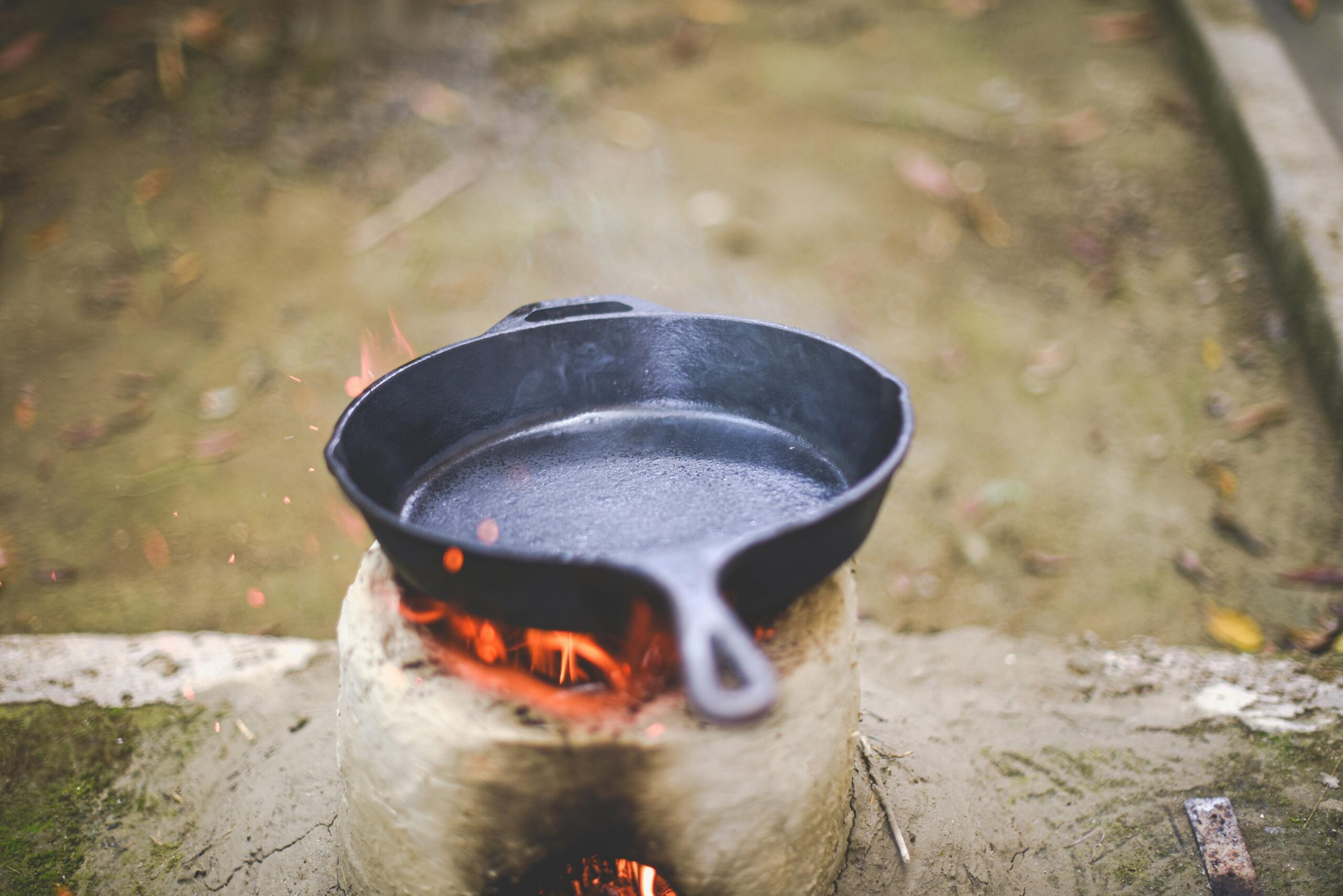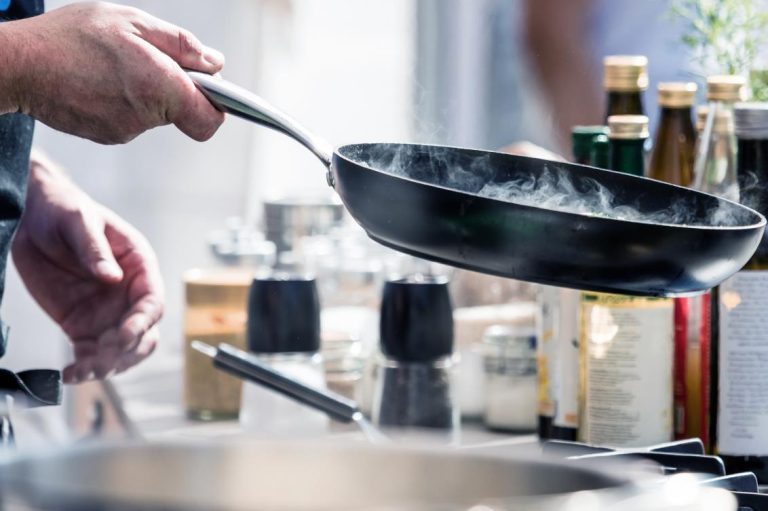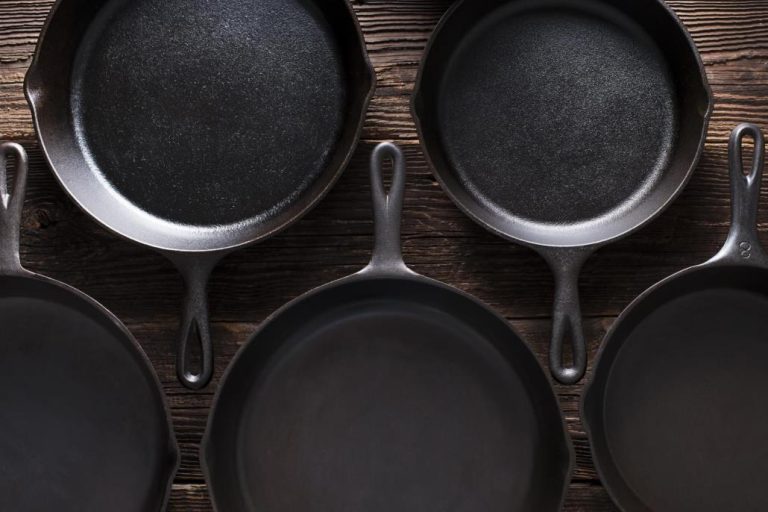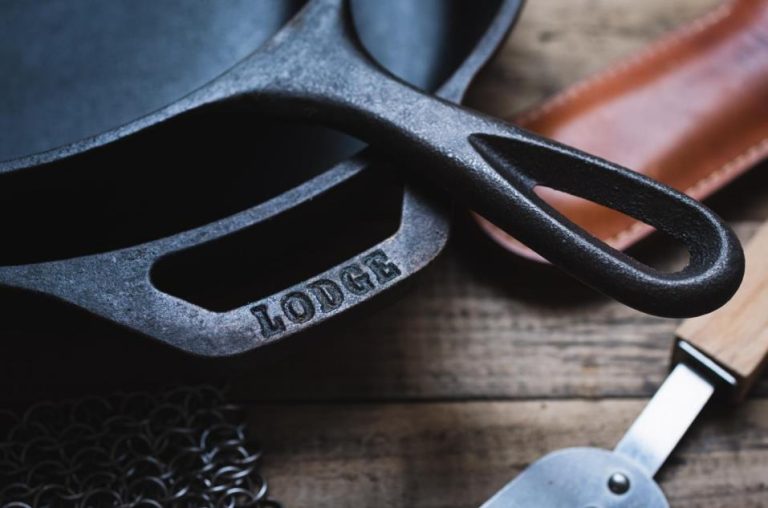A Gusseisen pan is a kitchen staple that can last for generations when properly cared for. However, exposure to moisture and oxygen can lead to rust, which not only damages the pan’s seasoning but may also affect the flavor of your food. Don’t worry, though—with the right techniques, you can restore your rusty cast iron pan to its former glory.
Why Do Cast Iron Pans Rust?
Cast iron is prone to rusting because it contains iron, which reacts with oxygen and water. The protective seasoning (a layer of polymerized oil) on the pan can be damaged by improper cleaning methods like soaking, using the dishwasher, or not drying the pan thoroughly after washing. Even a well – seasoned pan can rust if exposed to these conditions.
What You’ll Need to Clean Rust Off Cast Iron
Before you start, gather these simple, household-friendly supplies. Avoid harsh chemicals (they can damage the pan’s seasoning!):
- Steel wool (fine or medium grade) or a cast iron scrub brush
- Baking soda (for tough rust spots)
- Warm water (not boiling—extreme temps can crack cast iron)
- Mild dish soap (optional, only for heavy grime)
- Paper towels or clean, lint-free cloths
- Vegetable oil, flaxseed oil, or cast iron seasoning oil
- Oven (for re-seasoning)
Kaufen Sie Messer im Großhandel und starten Sie noch heute mit uns ins Wachstum
Kontaktieren Sie uns und verbinden Sie sich mit einem Vertriebsmitarbeiter, um ein kostenloses Angebot zu erhalten.
How to Clean Rusty Cast Iron Pan
Step 1: Remove Loose Rust
Start by using steel wool oder ein stiff – bristled brush to scour the rusty areas of the cast iron pan. This will help remove the loose, flaky rust from the surface. Be thorough but gentle enough not to scratch the pan excessively.
Step 2: (Optional) Clean with Dish Soap
If your pan is extremely dirty, you can use a small amount of natural dish soap and warm water to wash it. However, this should be done sparingly as frequent use of dish soap can damage the seasoning. Rinse the pan well after washing.
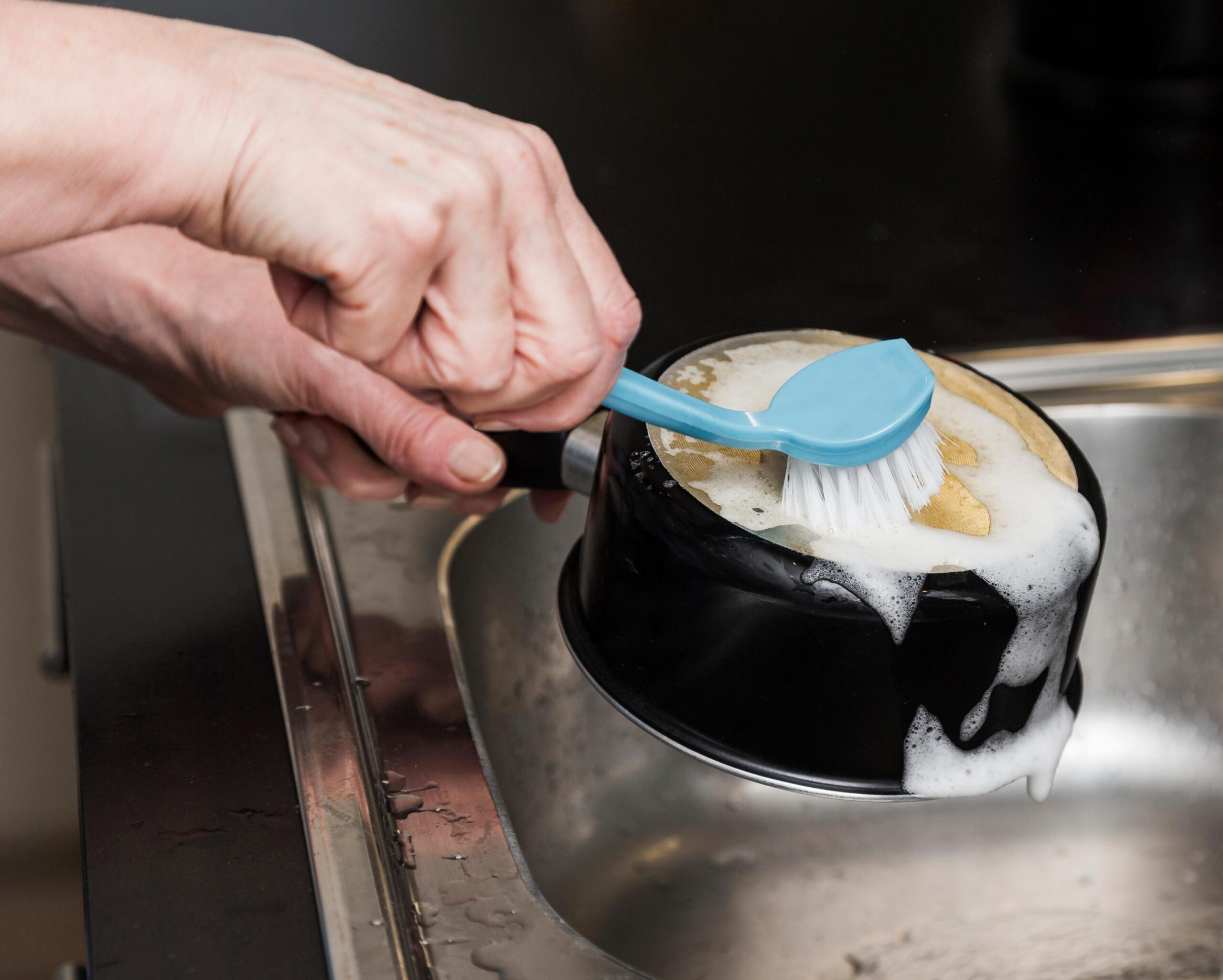
Step 3: Soak in Vinegar Solution
Create a solution of equal parts white vinegar and water. Submerge the rusty cast iron pan in this solution and let it soak for 30 minutes to 1 hour. Do not leave it soaking for more than an hour, as prolonged exposure to vinegar can corrode the cast iron. The acidic nature of the vinegar will help break down the rust.
Step 4: Scrub Again
After soaking, take the pan out and use the steel wool or stiff – bristled brush again to scrub the pan. The vinegar will have loosened the rust, making it easier to remove. Pay special attention to any remaining rusty spots.
Step 5: Remove Residual Rust with Baking Soda
Make a paste by mixing baking soda with a small amount of water. Apply this paste to any remaining rust spots on the pan and scrub gently. Baking soda is a mild abrasive that can help remove stubborn rust without damaging the pan.
Step 6: Rinse and Dry Thoroughly
Rinse the pan well under running water to remove any traces of vinegar, baking soda, or rust. Then, use kitchen towels or lint – free cloths to dry the pan completely. You can also place the pan on the stovetop over low heat for a few minutes to ensure it is completely dry, as any remaining moisture can lead to further rusting.
Kaufen Sie Messer im Großhandel und starten Sie noch heute mit uns ins Wachstum
Kontaktieren Sie uns und verbinden Sie sich mit einem Vertriebsmitarbeiter, um ein kostenloses Angebot zu erhalten.
Re – Seasoning the Pan After Cleaning
After cleaning the rust, it’s essential to re – season the pan to create a new protective layer.
- Apply a Thin Layer of Oil: Use a cloth or lint – free paper towel to apply a very thin layer of cooking oil (such as vegetable oil or canola oil) to the entire surface of the pan, including the outside and the handle. The oil should be so thin that it doesn’t drip when you tilt the pan.
- Bake in the Oven: Preheat your oven to 450 – 500°F (232 – 260°C). Place a sheet of aluminum foil on the bottom rack to catch any drips. Put the oiled pan upside down on the middle rack of the oven and bake for 1 hour.
- Cool in the Oven: Turn off the oven and let the pan cool inside. This allows the oil to polymerize and form a durable seasoning.
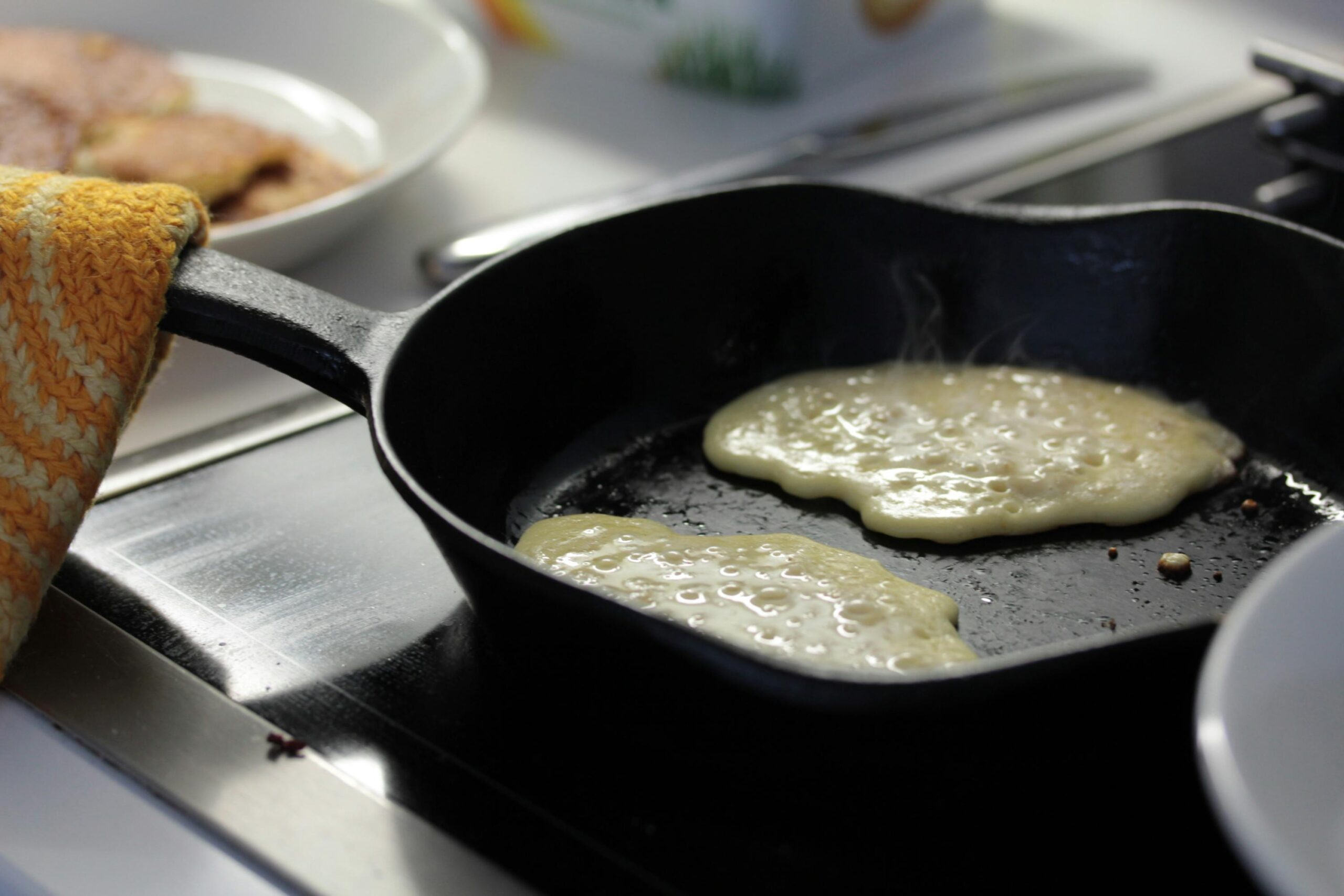
Preventing Rust in the Future
- Re – season Regularly: Every few months, depending on use, re – season your cast iron pan to maintain the protective layer.
- Avoid Acidic Foods: Cooking highly acidic foods like tomatoes or citrus fruits in an unseasoned or poorly seasoned cast iron pan can damage the seasoning.
- Never Use the Dishwasher: The harsh environment of the dishwasher can strip the seasoning and cause rust.
- Dry Thoroughly: Always dry your cast iron pan completely after washing, either with a towel or by heating it on the stovetop.
- Use Frequently: Regular use of the pan helps build up and maintain the seasoning.
Kaufen Sie Messer im Großhandel und starten Sie noch heute mit uns ins Wachstum
Kontaktieren Sie uns und verbinden Sie sich mit einem Vertriebsmitarbeiter, um ein kostenloses Angebot zu erhalten.
Final Thoughts: Start with Quality Cast Iron (and Trusted Partners)
Cleaning a rusty cast iron pan is manageable, but investing in a high-quality pan from the start reduces rust risk and ensures long-lasting performance. At Leeknives, we specialize in premium cookware—including durable cast iron pans and sharp, reliable knives—designed for home cooks and businesses alike.
Whether you’re a retailer looking to stock top-tier cast iron cookware, a restaurant in need of bulk kitchen tools, or a brand seeking custom solutions, we’ve got you covered. We offer OEM services to create cookware tailored to your brand’s specs, plus Großhandel options to fit your business volume. Our cast iron pans are crafted for even heating and easy maintenance—so your customers (or team) spend less time fixing rust and more time cooking.
Ready to elevate your cookware lineup? Reach out to Leeknives today to learn more about our OEM and Wholesale services for cast iron pans and knives.
Häufig gestellte Fragen
Is cast iron ruined if rusted?
No—cast iron is not ruined by rust! Unlike fragile cookware, cast iron’s durable metal can withstand rust removal and restoration. Rust only affects the surface (and any existing seasoning), not the pan’s structural integrity. As long as you follow the steps above—removing rust with steel wool/baking soda, drying thoroughly, and re-seasoning—your cast iron pan will regain its non-stick properties and last for decades. High-quality cast iron (like the pans we craft at Leeknives) is especially resilient, making rust repair even simpler.
Is a little bit of rust on cast iron ok?
A little bit of rust on cast iron isn’t immediately dangerous—small, surface-level flecks won’t harm you or ruin the pan’s structure—but it’s not wise to ignore. Even minor rust means the pan’s protective seasoning is damaged there, and the rust will spread over time (especially with moisture), hurting its non-stick performance. Fix it fast: wipe the spot with a damp towel, gently scrub with fine steel wool, dry thoroughly (even heat it briefly), then rub a tiny bit of oil on the area. With durable Leeknives cast iron pans, this quick touch-up keeps them in great shape for ages.
